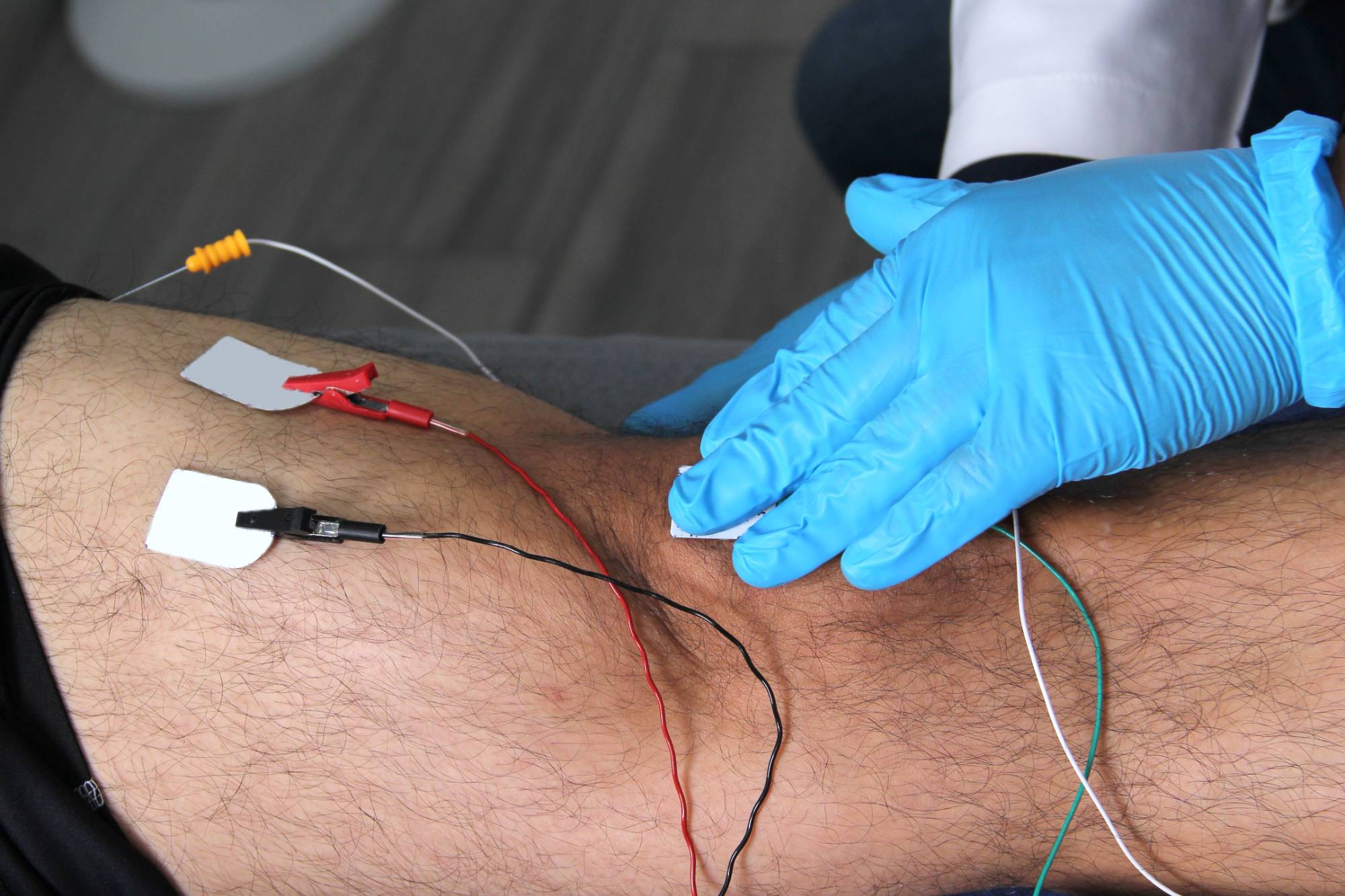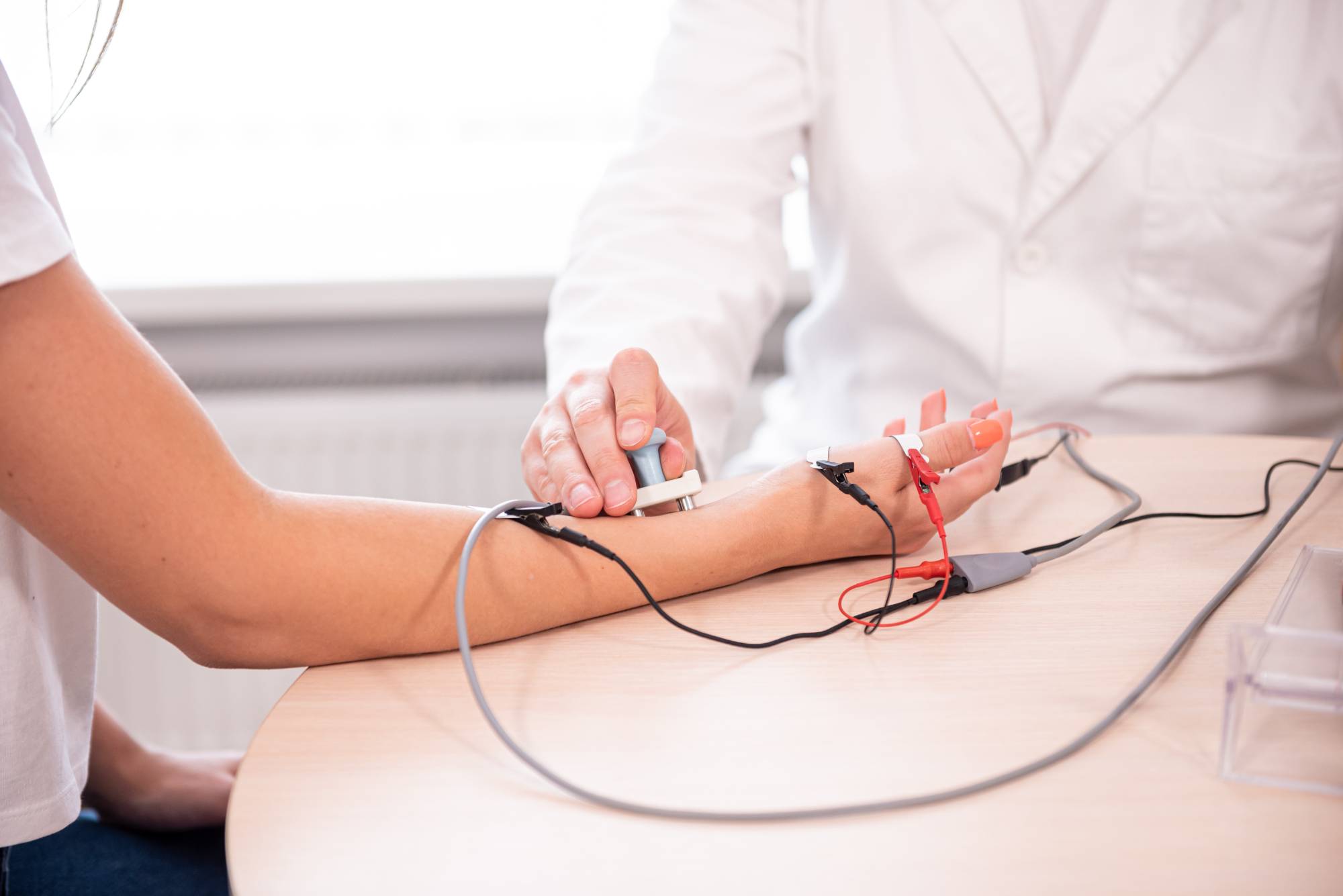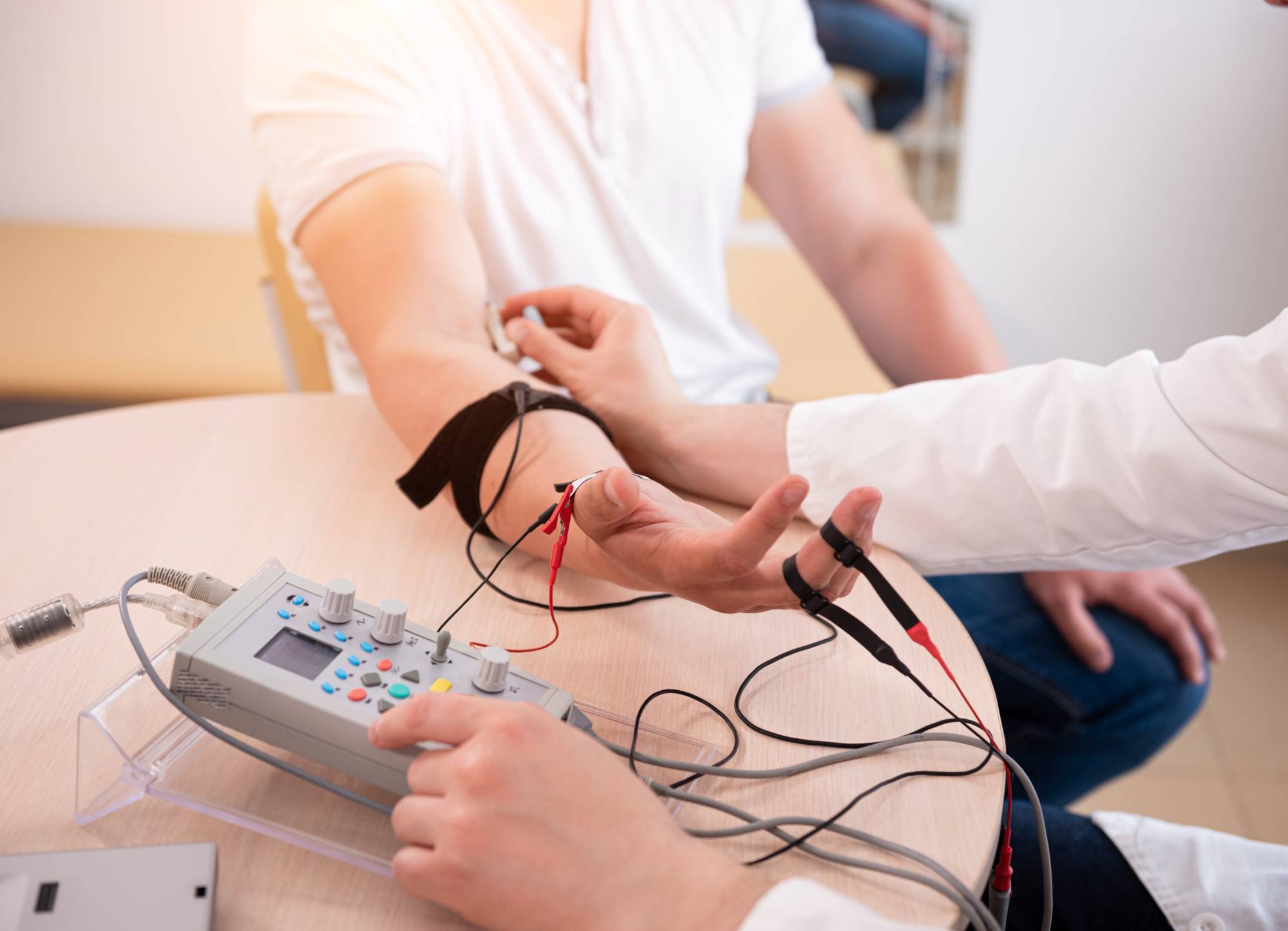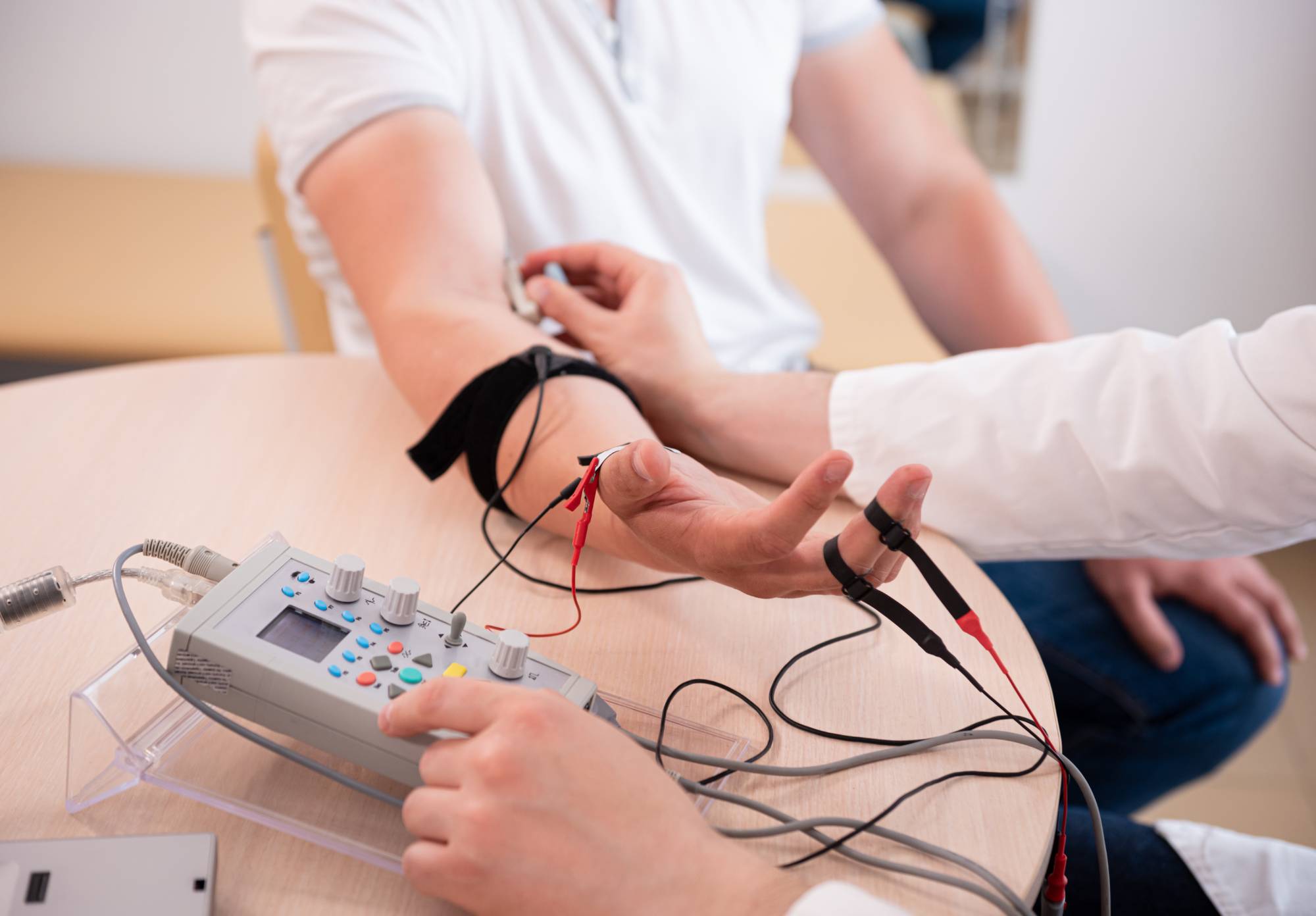Advanced electromyography testing that pinpoints exactly what’s causing your numbness, tingling, or muscle weakness.

Reviews

You’ve been dealing with unexplained symptoms long enough. That tingling in your hands that keeps you awake. The muscle weakness that makes simple tasks frustrating. The numbness that has you worried about what’s really going on.
EMG testing gives you concrete answers. Within minutes, we can tell you if your symptoms are coming from nerve compression, muscle disorders, or conditions like carpal tunnel syndrome or sciatica. No more guessing. No more generic treatments that don’t address the real problem.
When you know exactly what’s causing your symptoms, you can move forward with targeted treatment that actually works. You get your confidence back, your sleep back, and your life back.
NY Spine Medicine has been serving patients throughout the New York and New Jersey area with advanced diagnostic testing and spine care. Our team consists of board-certified physicians who specialize specifically in spine medicine and pain management.
What sets us apart is our focus on getting you answers quickly. We use state-of-the-art EMG equipment and provide same-day results with detailed explanations of what the findings mean for your specific situation.
Located conveniently for Jersey City residents, we accept most major insurance plans and provide transparent billing so you know what to expect.

The EMG test itself takes about 30-60 minutes depending on which nerves and muscles need evaluation. First, you’ll have a nerve conduction study where small electrical pulses test how well your nerves transmit signals. This feels like mild static electricity.
Next comes the electromyography portion where a thin needle electrode is inserted into specific muscles to measure electrical activity. Most patients describe this as similar to getting blood drawn – brief discomfort but very tolerable.
Throughout the test, we explain what we’re seeing in real time. You’ll get your results immediately, along with a clear explanation of what they mean and what your next steps should be. No waiting weeks for answers or wondering what the findings actually mean for your situation.

Ready to get started?
Your EMG testing appointment includes both nerve conduction studies and electromyography testing to give you the most complete picture of what’s happening with your nerves and muscles. The testing can diagnose conditions like carpal tunnel syndrome, ulnar neuropathy, radiculopathy, peripheral neuropathy, and various muscle disorders.
You’ll receive detailed results immediately after testing, along with a comprehensive explanation of findings. If treatment is needed, we’ll discuss all available options and help you understand which approach makes the most sense for your specific condition and lifestyle.
We also provide all necessary documentation for insurance purposes and can coordinate care with your primary physician or other specialists if needed. Everything is handled efficiently so you can focus on getting better rather than managing paperwork.

New York:
Florida:
Support